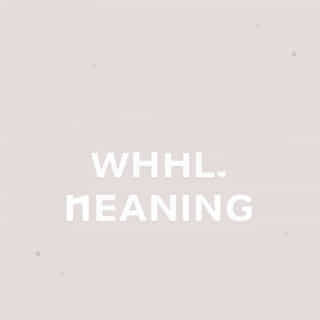The phrase on the whole is a commonly used expression in English that signifies a general or overall perspective. It is typically used when summarizing or concluding a point, especially after considering all aspects of a subject. Rather than focusing on one small part, this phrase invites the listener or reader to view something in its entirety. Understanding the meaning and usage of on the whole can enhance clarity in both spoken and written communication, making it easier to present balanced conclusions and well-rounded opinions.
Definition and Core Meaning
On the whole means ‘in general,’ ‘overall,’ or ‘when everything is taken into account.’ It is used when you want to provide a general statement after considering both the positive and negative elements of a situation. The phrase suggests that while there may be exceptions or minor issues, the broader picture leans in one particular direction.
Examples of Usage
- On the whole, the project was a success despite a few challenges.
- There were some delays, but on the whole, the trip went smoothly.
- On the whole, customers are satisfied with the new product.
These examples show how the phrase helps provide a summary judgment that considers multiple aspects without getting lost in individual details.
When to Use On the Whole
The phrase is appropriate in both formal and informal contexts, including conversation, academic writing, business communication, and media reporting. It is particularly useful when summarizing complex topics or offering a concluding opinion.
Common Situations
- In Business: When evaluating a team’s performance or a quarter’s results.
- In Education: When assessing a student’s progress over time.
- In Media: When reviewing a movie, book, or public event.
- In Personal Conversation: When discussing life experiences or decisions.
In each of these settings, on the whole helps smooth out extremes by presenting a moderate and inclusive viewpoint.
Synonyms and Similar Expressions
There are several expressions in English that carry a similar meaning to on the whole. While each has its own nuance, they are often interchangeable depending on the sentence.
Alternative Phrases
- All in all – Similar in tone, slightly more casual.
- By and large – Often used in British English, means generally.
- In general – A direct synonym, commonly used in both speech and writing.
- Overall – Very close in meaning, often preferred in formal writing.
While on the whole has a slightly more reflective or thoughtful tone, these phrases can often be substituted depending on your desired style.
Grammatical Structure
Grammatically, on the whole functions as an adverbial phrase. It typically appears at the beginning or in the middle of a sentence and modifies the entire clause. It helps the speaker or writer signal that the statement should be viewed as a general summary.
Placement in Sentences
- Beginning: On the whole, the film was enjoyable.
- Middle: The concert, on the whole, met expectations.
It is less common to see it at the end of a sentence, as its function is to set the tone for what follows or frame a clause within context.
On the Whole vs. As a Whole
Though similar in appearance, on the whole and as a whole serve slightly different grammatical and stylistic purposes. Understanding the difference can help avoid confusion.
Differences in Usage
- On the whole– Used to introduce a general evaluation or summary.
- As a whole– Refers to a collective entity or totality.
Example (on the whole): On the whole, the performance was strong.
Example (as a whole): The team as a whole needs more training.
Both expressions are correct but should be used in their appropriate context to maintain clarity and grammatical accuracy.
Benefits of Using the Phrase
Incorporating on the whole into your communication has several advantages. It not only improves sentence variety but also encourages balanced thinking. It helps avoid extremes and supports a more thoughtful tone.
Why Use On the Whole?
- Promotes fairness by acknowledging both strengths and weaknesses.
- Improves coherence in writing and speaking.
- Useful for drawing conclusions and writing summaries.
- Helps maintain a calm and analytical tone.
This phrase is especially valuable in academic or professional settings where objectivity is important.
Practical Tips for Everyday Use
To use on the whole effectively in conversation or writing, consider the following tips:
- Use it after considering all relevant facts or perspectives.
- Combine it with supportive details to strengthen your point.
- Avoid using it to dismiss important exceptions acknowledge them first.
- Practice with different sentence placements to increase fluency.
By consciously incorporating the phrase into daily language, you can become more skilled in making fair, rounded assessments.
Examples in Different Fields
Let’s explore how on the whole is used in different areas of life and work:
Education
On the whole, the students showed improvement in their writing skills this semester.
Health and Wellness
The patient’s recovery has been steady on the whole, with only minor setbacks.
Technology
On the whole, the new software update has improved system performance.
Travel and Lifestyle
We had some weather issues, but on the whole, the vacation was relaxing and fun.
These examples show the flexibility and relevance of the phrase across a wide range of topics.
The phrase on the whole is a valuable tool in the English language for expressing general opinions or summaries. It serves as a bridge between different points of view and helps communicate balanced conclusions. Whether you are writing an topic, giving a presentation, or engaging in casual conversation, using on the whole effectively can make your message clearer and more thoughtful. Its versatility and simplicity make it a staple of good communication, especially when the goal is to reflect on a situation as a complete picture rather than isolated moments.
